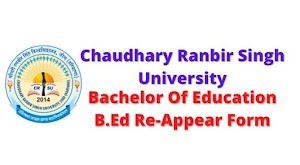Explain the concept of teaching. What
are the basic principles of teaching ?
INTRODUCTION
A society with democratic ideals attempts
continuously to improve its programs and agencies for serving the common
welfare of all citizens. It attempts to insure these improvements chiefly by
establishing schools through which the society accepts interests and needs that
each youth feels may be discovered and cultivated. It seeks through education
to develop in each young citizen a strong feeling of need and responsibility
for contributing his special abilities and understanding to the cooperative
development of better solutions to the increasingly complex problems of modern
living. Although success in teaching is facilitated by scientific knowledge of
human nature and of the conditions under which individuals grow and learn, an
effective teacher is primarily an artist rather than a scientist. He is
original and creative in discovering ways to help each individual to develop
his own potentialities for living a life that is both satisfying to himself and
useful to his fellow men.

TEACHING
Teaching in simple terms is referred to as
either an occupation on profession of a group known as teachers or an activity
or activities of a group undertaken to help an individual to learn or acquire some
knowledge, skills, attitudes or interests. Teaching is meant to help in learning. The teacher can motivate students to take interest in learning can
guide to have those experiences by which he can learn facts, attitudes or
skills. The concept of teaching is changing and due to these changing concepts
now education has not remained the right of limited few last now it has become
the right of everyone. Teaching becomes complete when learning in also added to
it. Hearing is complementary to teaching. By all means and any shape it is
always designed within a social context and therefore, is related to the social
structured cultural environment, values, and ideals of the people, society and
the government. All these factors always stand for the flexibility and dynamism
and therefore the meaning and definitions of teaching have always been in a
slate of change depending on the need of time, place and society. Some of these
definitions are presented as follows
H.C. Morrisom (1934):-
"Teaching is an intimate contest
between a more mature personality and a less mature one which is designed to
further the educations of the latter."
John Brubacher (1939) :-
"Teaching is an arrangement and
manipulation of a situation in which there are gaps and obstructions which on
individual will seek to overcome and from which he will learn in the course of
doing so.
B.O. Smith (1960):-
Teaching is a system of
actions intended to produce learning
N.L. Gage (1962):-
Teaching is a form of
interpersonal influence aimed at changing the behavior potential of another person.
B.O. Smith (1963):-
Teaching is a system of actions involving
an agent, an end in view and a situation including two sets of factors on which
the control (class, size, size of classroom, physical characteristics of pupils
etc) and agent has those that he can modify (way of asking questions about
instruction and structuring information or ideas gleaned.)
Edmund Amidon (1967):-
Teaching is defined as an interactive
process primarily involving classroom talk which takes place between teachers
and pupils and occurs during certain definable activities.
NATURE OF TEACHING
1. A complex social process
2. Both art as well as science
3. A professional activity
4. An output of teacher's efforts
5. An organized system of varied action.
6. An amenable to scientific observation
and analysis.
7. Highly dominated by the communication
skill.
8. An interactive process
9. Have various forms and styles
10. A specialized task compressing of different
teaching skills.
IMPORTANCE OF TEACHING:-
We can understand the importance of
teaching by observing few points which are given below:
1. Good teaching creates way of learning.
2. It is sympathetic.
3. It is cooperative and suggestive.
4. It is stimulating
5. Good Teaching is progressive.
6. Good Teaching is democratic
7. Good Teaching is both diagnostic and remedial
8.
Good Teaching encourages self learning.
9. Good Teaching librates child and mind.
GENERAL PRINCIPLES OF TEACHING
There are some general principles of teaching
that have emerged from the general experiences, traditions and new researches
in the field of education and pedagogy.
1. Principles of Planning - The desired
goals in a teaching at may be achieved smoothly and effectively through proper
planning. 2. Principle of flexibility and elasticity: - The principle of
flexibility and elasticity needs to be observed for enabling the
teacher to deal effectively with the aroused situation.
3. Principle of utilizing past experience:
- What a teacher teaches should be properly linked with the already acquired
knowledge and experience.
4. Principle of Child Centredness: -
Teaching is aimed to bring about desirable changes in the behaviour of a child.
5. Principle of making provision for
individual differences :- The teaching which does not cater to the needs and
abilities of individual child, cannot be expected to achieve specific goals of
bringing desirable changes in the behaviour of all the children.
6. Principle of
linking with actual life: - Teaching should never be confined to the classroom or school boundaries, but should
be invariably linked with actual life.
7. Principle of effective strategies and
instructional material: - Teaching process for its success, also demands
effective strategies, means and materials.
8. Principle of correlating with
other subjects: - The study of a particular subject definitely helps the
learning of many things in other subjects.
9. Principle of active participation and
Involvement: - A good teaching should always to be a two way traffic, making
the task of teaching a cooperative effort of the teacher and the taught.
10. Principle of conductive environment and
proper control: - The role of conductive and effective management or control of
the teaching-learning situation can never be divided in any
teaching.
11. Principle of definiteness of goals or
objectives: - The personality of a good teaching is always enhanced by
observing the principle of definiteness of goal or objectives
MAXIMS OF TEACHING
Educationists and teachers engaged in the
task of actual class-room teaching have evolved certain simple notions and
working ways based on our experiences which may prove quite helpful in the task
of teaching. These are known maxims of teaching. We discuss some of the
important ones.
From known to unknown:-
Known can always prove reliable base for
making acquaintance with the unknown. Thus the previous knowledge of a
particular subject or topic may help us to collect new information and explore
the unknown
From definite to indefinite:-
Definite things, concepts events or
knowledge may be easily approached for catching the indefinite ones.
From simple to complex:-
Proceeding from simple to complex or easy
to difficult always provides a appropriate learning order or sequence. This
sequence provides an automatic reinforcement, motivation, aspiration to move
towards more difficult and builds his mastery in difficult and complex
concepts.
From concrete to abstract:-
The concrete material is to be shown,
living examples are to be given to make learning easy and to acquire new
knowledge. These direct experiences help an individual to learn the abstract
concepts.
From particular to general:-
Generalized facts principles, concepts and
phenomenon are quite abstract in nature, therefore a teacher should always
begin with the learning or experiencing of the particular case, facts, or
instances then persuade his student to generalize or conclude.
From whole to parts:-
The knowledge of a whole is always
understandable, motivating and effective. Therefore beginning should always be
made with the whole and then step-by-step it's various parts or constituents
should be presented before the students.
From Induction to deduction:-
In teaching a teacher is required to place
particular instances, examples, facts or experiences before the students. On
the basis of similar properties and repetitions of phenomenon a student is able
to form a generalized concept, rule and principles. Here beginning is made by
placing the generalized fact, principle formula or rule before the students and
they are asked to verify the truth of the generalization by applying it in particular
instance or examples.
From analysis to synthesis:-
Analysis refers to a process of breaking or
separating out a thing into the simpler parts, elements or constituents where
as synthesis refers to process of combining the different elements or parts of
a thing in totality. As analysis represents a systematic, formative approach it
is quite applicable to the beginning of a learning or teaching act.
From empirical to rational –
In a teaching-learning process it is always
fruitful to begin with what we see, feel and experience rather than only what
we agree, generalize or explained. Thus a teacher has to place facts,
evidences, direct and indirect experiences, examples full of objectivity and
validity to arrive at some conclusion or develop a rational point of view in
understanding the nature and concepts of the objects, events and phenomenon,
From psychological to logical –
In the psychological point of view the
planning a organization of teaching activities are based on child's needs,
interests, abilities and capacities but a wise teacher integrates his teaching
activities with psychological principles as well as logic in planning,
learning experiences teaching strategies, evaluation activities and feedback
devices.
Iearning and Teaching notes study material for b.ed first year and b.ed second year crsu mdu kuk cdlu cblu igu du all other university

















0 Comments